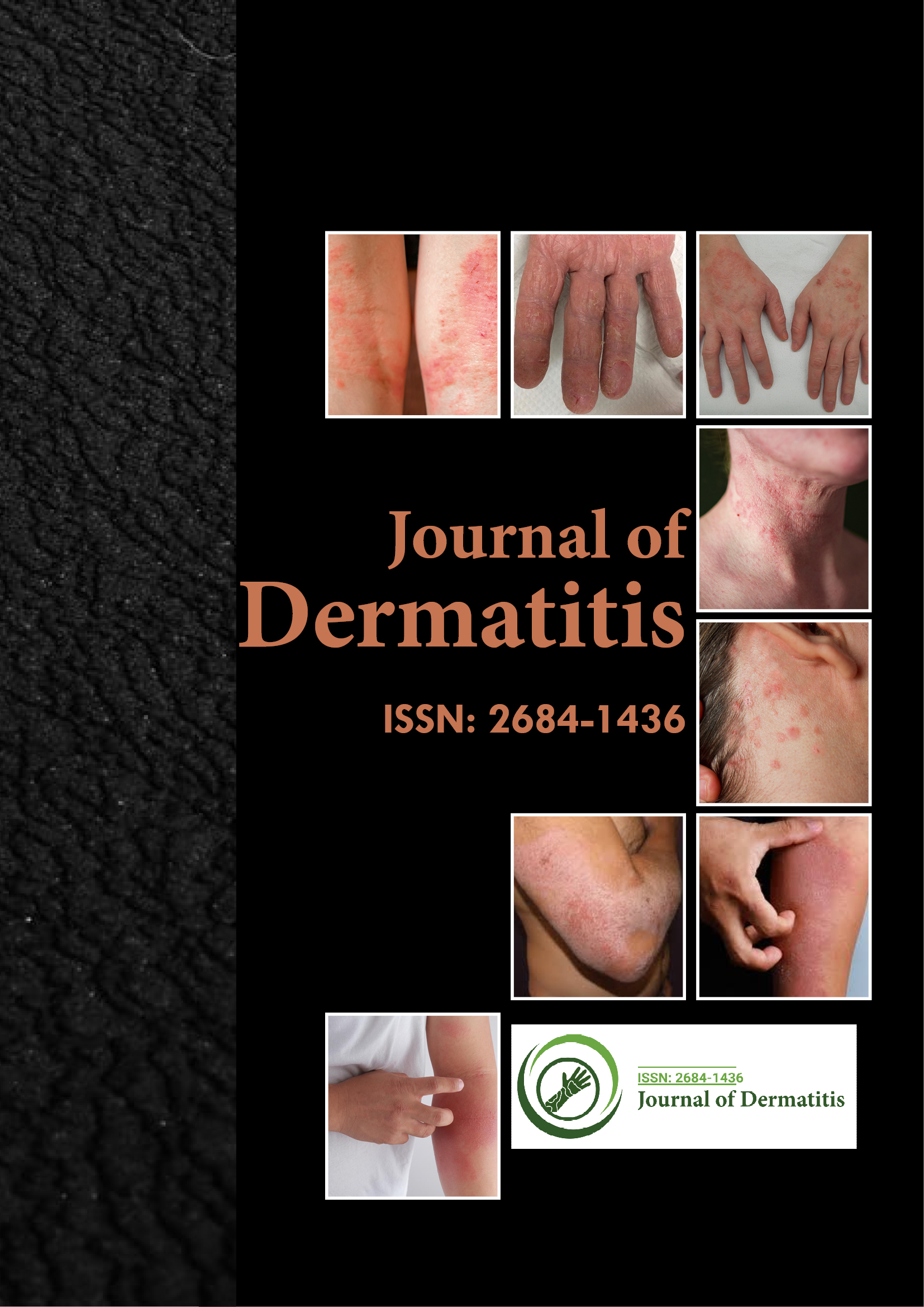Indexed In
- RefSeek
- Hamdard University
- EBSCO A-Z
- Euro Pub
- Google Scholar
Useful Links
Share This Page
Journal Flyer

Open Access Journals
- Agri and Aquaculture
- Biochemistry
- Bioinformatics & Systems Biology
- Business & Management
- Chemistry
- Clinical Sciences
- Engineering
- Food & Nutrition
- General Science
- Genetics & Molecular Biology
- Immunology & Microbiology
- Medical Sciences
- Neuroscience & Psychology
- Nursing & Health Care
- Pharmaceutical Sciences
Perspective - (2023) Volume 8, Issue 6
Various Pathways behind Atopic Eczema and Regulations
Walker Abdulaz*Received: 17-Aug-2023, Manuscript No. JOD-23-23550; Editor assigned: 21-Aug-2023, Pre QC No. JOD-23-23550 (PQ); Reviewed: 04-Sep-2023, QC No. JOD-23-23550; Revised: 11-Sep-2023, Manuscript No. JOD-23-23550 (R); Published: 19-Sep-2023, DOI: 10.35248/2684-1436.23.8.219
Description
Atopic eczema, also known as atopic dermatitis, is a chronic and often debilitating skin condition that affects millions of people worldwide, particularly children and infants. It is characterized by inflamed, itchy skin, which can lead to a significant reduction in the quality of life. The development and progression of atopic eczema are influenced by a complex interplay of genetic, immunological, environmental, and lifestyle factors. Understanding the various pathways behind atopic eczema and the associated regulatory mechanisms is vital in the effective treatments and improved patient outcomes. Various pathways of atopic eczema mentioned below.
Genetic factors
Atopic eczema has a strong genetic component. Individuals with a family history of atopic diseases, such as asthma, hay fever, or eczema, are more predisposed to developing the condition. Several genes have been identified as associated with atopic eczema, including those involved in skin barrier function and immune response.
Skin barrier dysfunction
One of the primary pathways in atopic eczema is the disruption of the skin barrier. The skin normally acts as a protective barrier to prevent moisture loss and keep harmful substances out. In atopic eczema, a compromised skin barrier allows irritants and allergens to penetrate, leading to inflammation and itching.
Immune system dysregulation
An overactive immune response is a hallmark of atopic eczema. T cells, particularly T-helper 2 (Th2) cells, play a significant role in promoting inflammation and allergic responses in the skin. These immune cells release cytokines like interleukin-4 (IL-4) and interleukin-13 (IL-13), which contribute to the inflammatory processes observed in eczema.
Environmental triggers
Allergens and environmental factors can exacerbate atopic eczema. Common triggers include pollen, dust mites, pet dander, certain foods, and harsh weather conditions. Exposure to these triggers can worsen symptoms, causing flare-ups of the condition.
Microbial involvement
The skin is home to a diverse microbiome, which plays a role in maintaining skin health. In atopic eczema, there is often an imbalance in the skin's microbiome, with a reduced diversity of beneficial bacteria. This imbalance can contribute to inflammation and exacerbate symptoms.
Emollients and moisturizers
Maintaining skin hydration is vital in regulating atopic eczema. Regular use of emollients and moisturizers helps to repair the impaired skin barrier, reducing water loss and preventing allergen penetration. This is a fundamental step in eczema management.
Topical steroids and immunosuppressants
Topical corticosteroids and immunosuppressant creams are commonly prescribed to reduce inflammation in the skin. These medications help control the overactive immune response and provide relief from itching and redness.
Antihistamines
Antihistamines may be used to relieve itching, particularly during flare-ups. These medications block the action of histamine, a molecule released during an allergic response that triggers itching.
Biologics
In severe cases of atopic eczema that do not respond to conventional treatments, biologics may be considered. These medications target specific immune pathways, such as IL-4 and IL-13, to modulate the immune response and alleviate symptoms.
Allergen avoidance
Identifying and avoiding specific allergens can be a vital part of eczema management. Allergy testing can help determine the triggers, allowing individuals to minimize exposure.
Lifestyle and dietary modifications
Maintaining a healthy lifestyle and diet can help manage atopic eczema. Reducing stress, getting enough sleep, and consuming an anti-inflammatory diet rich in omega-3 fatty acids and antioxidants may support overall skin health.
In conclusion, atopic eczema is a multifaceted condition with various pathways contributing to its development and progression. While there is no cure for eczema, understanding these pathways and implementing effective regulatory mechanisms can significantly improve the lives of individuals affected by the condition. Tailored treatment plans, including the use of medications, allergen avoidance, and lifestyle adjustments, are essential in managing atopic eczema and alleviating its symptoms. Ongoing research into the genetic and immunological factors at play continues to provide hope for more targeted and personalized treatments in the future.
Citation: Abdulaz W (2023) Various Pathways behind Atopic Eczema and Regulations. J Dermatitis. 8:219.
Copyright: © 2023 Abdulaz W. This is an open-access article distributed under the terms of the Creative Commons Attribution License, which permits unrestricted use, distribution, and reproduction in any medium, provided the original author and source are credited.

